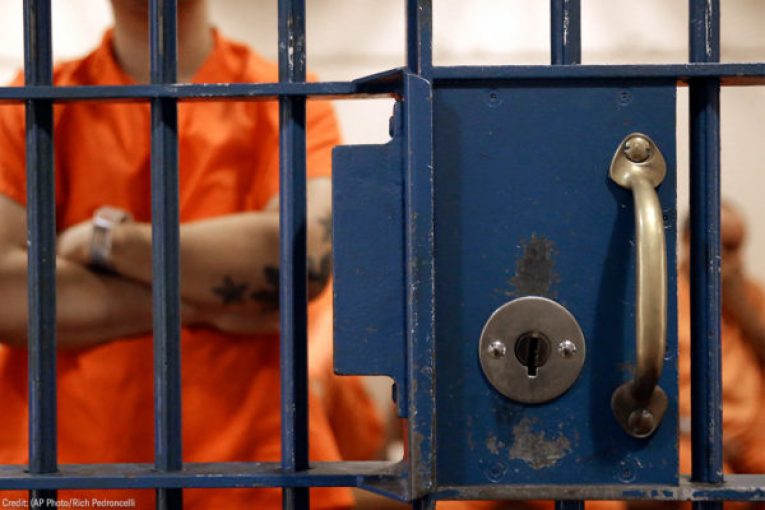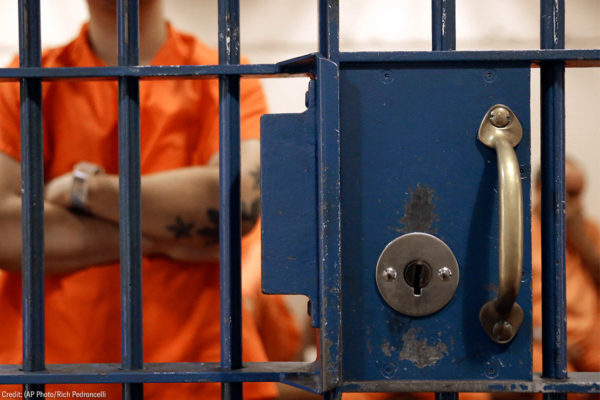

By Julian Verdon
As expressly stated in the Constitution, a speedy trial is one of the fundamental rights, for every American citizen, when facing criminal charges. However, the pandemic has stalled that process. Today, defendants could wait for months, and even await trial in COVID-19 infested jails.
As the pandemic carries on, many courts throughout the country have struggled to respond. The libertarian magazine Reason reported that, “All circuit court jury trials in South Carolina were suspended just this week after resuming in September. New Jersey did the same last month amidst a surge in COVID-19 cases.”
Big cities also lagged when it came to carrying out jury trials. According to a report in the New York Times, the state and federal government in New York City could only complete nine trials since the pandemic hit in March.
The Times story also reported that over four hundred defendants have resided in New York City jails for at times up to two years. The pandemic has slowed their cases to an even slower grind than usual.
The inability to complete jury trials affects the whole country. Kirsten Tynan, the Fully Informed Jury Association executive director, said that 16 states have suspended their jury trials. The ones that still operate can only function at a diminished capacity.
The Supreme Court of Illinois waved off concerns in an emergency order that kept defendants in jail for months longer than usual. The report stated that “such continuances shall be excluded from speedy trial computations.”
“The continuances occasioned by this Order serve the ends of justice and outweigh the best interests of the public and defendants in a speedy trial,” the Illinois Supreme Court elaborated.
Other courts have administered similar orders throughout the nation, often citing that it is in the court staff’s best interest. However, such decrees fail to recognize the danger many defendants are put in. COVID-19 has ravaged jails, with many institutions recording over a thousand cases, even when operating with fewer inmates.
One such occurrence happened over the summer at Fresno County Jail. In June, the number of COVID-19 cases was 13. By August, the total number exceeded 1,100.
Also, many inmates in jails complained they were denied tests even when they requested one. Moreover, places like Camden County Jail in New Jersey initially issued masks to infected inmates. It was not until June that the other inmates were given masks.
Reason Magazine stated that a lack of court dates for a defendant meant they could be stuck in jail for months or years, which can be dangerous in a pandemic. Research conducted at the University of Texas at Austin said that in Texas, “80% of people who died in jails from COVID were not convicted of a crime.”
Some courts have tried to accommodate defendants awaiting jury trial with remote meetings. In November, Seattle’s federal district court became the first to reach three trial verdicts, all done through Zoom conferencing. In an interview with Law 360, the presiding judge explained how they accomplished it.
“What happened in June,” said Judge Marsha Pechman, “is I had a bench trial that I thought could be pulled off with a remote trial. We were using the WebEx platform at that time, and the parties said that they were game. So I basically took the testimony, heard the arguments, got the exhibits, and I decided this bench trial.
“That basically caused the chief judge in our district, Judge [Ricardo] Martinez, to ask if I would chair a committee that would put together a handbook for doing Zoom bench trials,” Judge Pechman elaborated.
When obtaining jurors, the court allowed them to take home the necessary equipment for Zoom conferencing. The court did this to ensure that it was not just those wealthy enough to participate in the process.
Other courts have attempted to socially distance jurors during a trial.
“These protocols include reconfiguring courtrooms and jury deliberation spaces to allow at least six-feet of social distancing by participants, the liberal use of masks or transparent face shields or both, the strategic placement of plexiglass barriers, vetting prospective jurors for health vulnerabilities or fears of exposing loved ones, reliance on technology to present evidence, and the constant cleaning of furniture and surfaces,” according to the United States Court’s website.
Judge James C. Dever, of the Eastern District of North Carolina, decided to go through with two jury trials after concluding they could be done in a safe manner. Judge Dever said that he and other judges were aware of how important a right to a speedy trial was.
“There is no pandemic exception in the Constitution, and the Constitution has stood the test of time for more than 230 years,” stated Judge Dever.
Although some courts have tried to accommodate a defendant’s right to a speedy trial, many still have not. Thus many defendants have been withheld their right to due process as they sit behind bars indefinitely.
Julian Verdon is a senior at UCLA majoring in English. He is from Los Angeles California.




